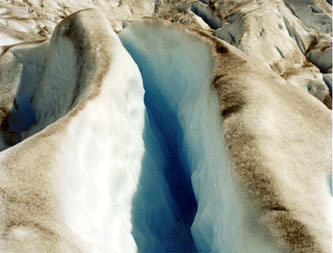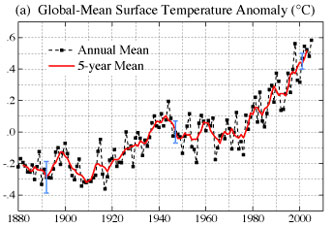Air above Antarctica warming rapidly
Rhett A. Butler, mongabay.com
March 30, 2006
Winter air temperatures over Antarctica have risen by more than 2C in the last 30 years, according to a study by scientists from the British Antarctic Survey. The increase in Antarctic temperature is three times larger than that observed globally over the same time period.
The research, published in the March 30 issue of the journal Science, found that the warming is seen across the whole Antarctic continent and much of the Southern Ocean. The study is the first to measure temperature change above the continent, previous studies focused on surface temperatures.
“The warming above the Antarctic could have implications for snowfall across the Antarctic and sea level rise,” said lead author Dr John Turner of the British Antarctic Survey. “Current climate model simulations don’t reproduce the observed warming, pointing to weaknesses in their ability to represent the Antarctic climate system. Our next step is to try to improve the models. ”
  Top image by N. Butler. Lower graph courtesy of the NASA Goddard Institute for Space Studies |
The scientists say current models used by climatologists do not explain the rise in air temperatures and questions remain over whether the warming results from increases in greenhouse gases in the atmosphere or natural phenomena like variations in Antarctica’s climate system.
The study comes a week after a paper in Science said that by 2100, Earth could be 4 degrees Fahrenheit warmer than present and sea levels could climb 2-6 meters (6-20 feet) if past climate is any indication of the future.
Meanwhile, data released by NASA earlier this month shows that Antarctica’s ice sheet decreased by about 152 cubic kilometers annually from April 2002 to August 2005, a volume of water equal to 3 months of total water consumption in the United States. In that study, researchers at the University of Colorado at Boulder said that the melting of the Antarctic ice sheet—which holds about 90 percent of Earth’s ice and 70 percent of the planet’s fresh water resources—accounted for about 13 percent, or around 1.2 millimeters, of the overall observed sea level rise for the same period. In all, Antarctica’s ice sheet holds enough water to raise sea levels by 60 meters.